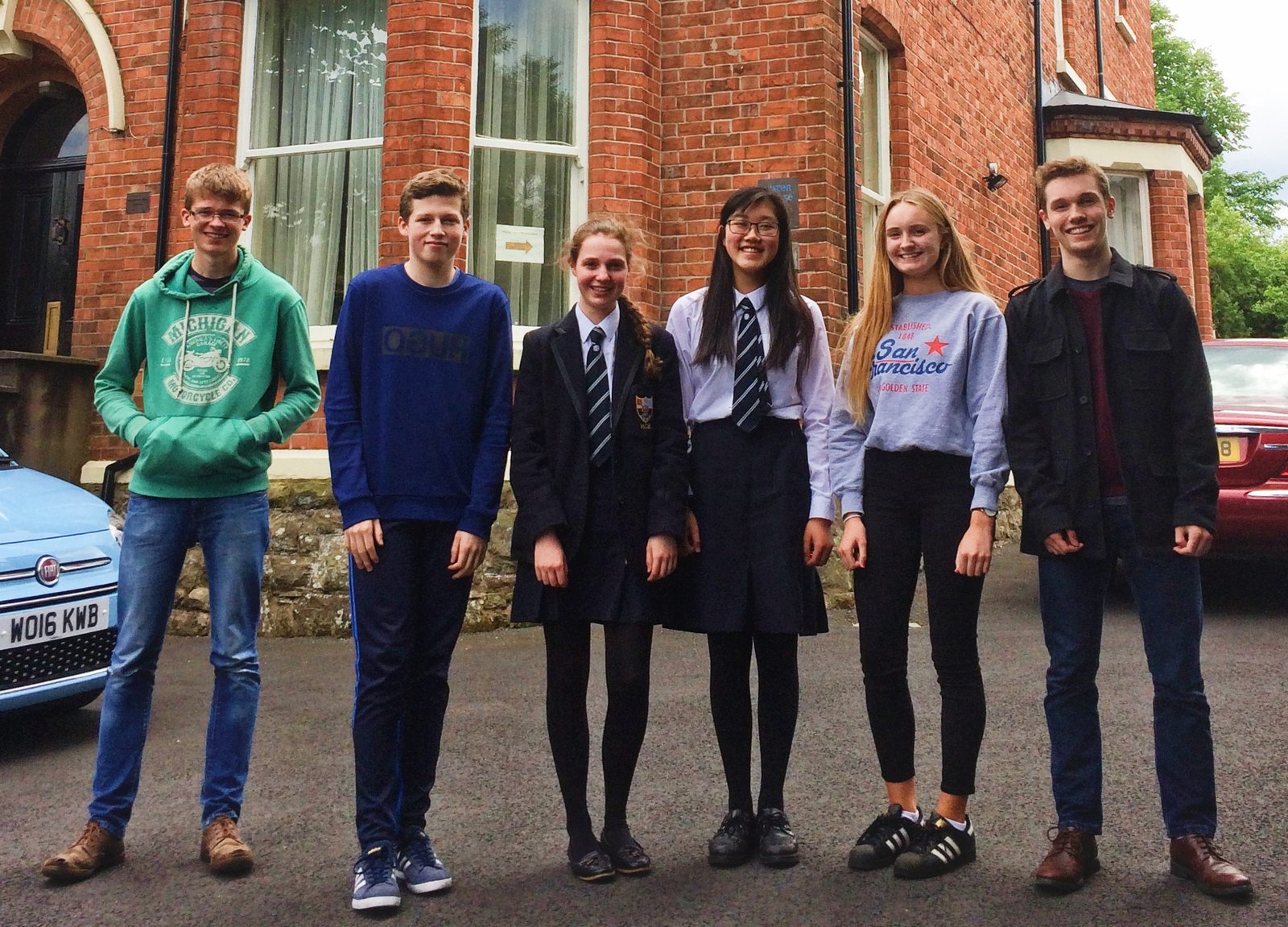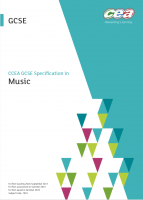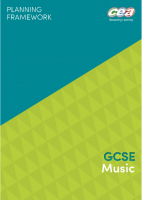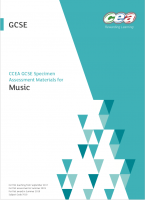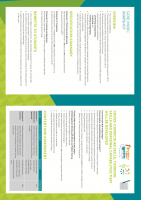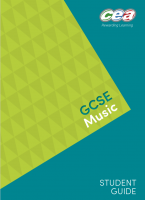GCSE Music
Enrolment for 2023-24 NOW OPEN! Contact the UCM Office!
GCSE classes are subject to cancellation if they are undersubscribed, but one-to-one tuition will be available (see fees page)
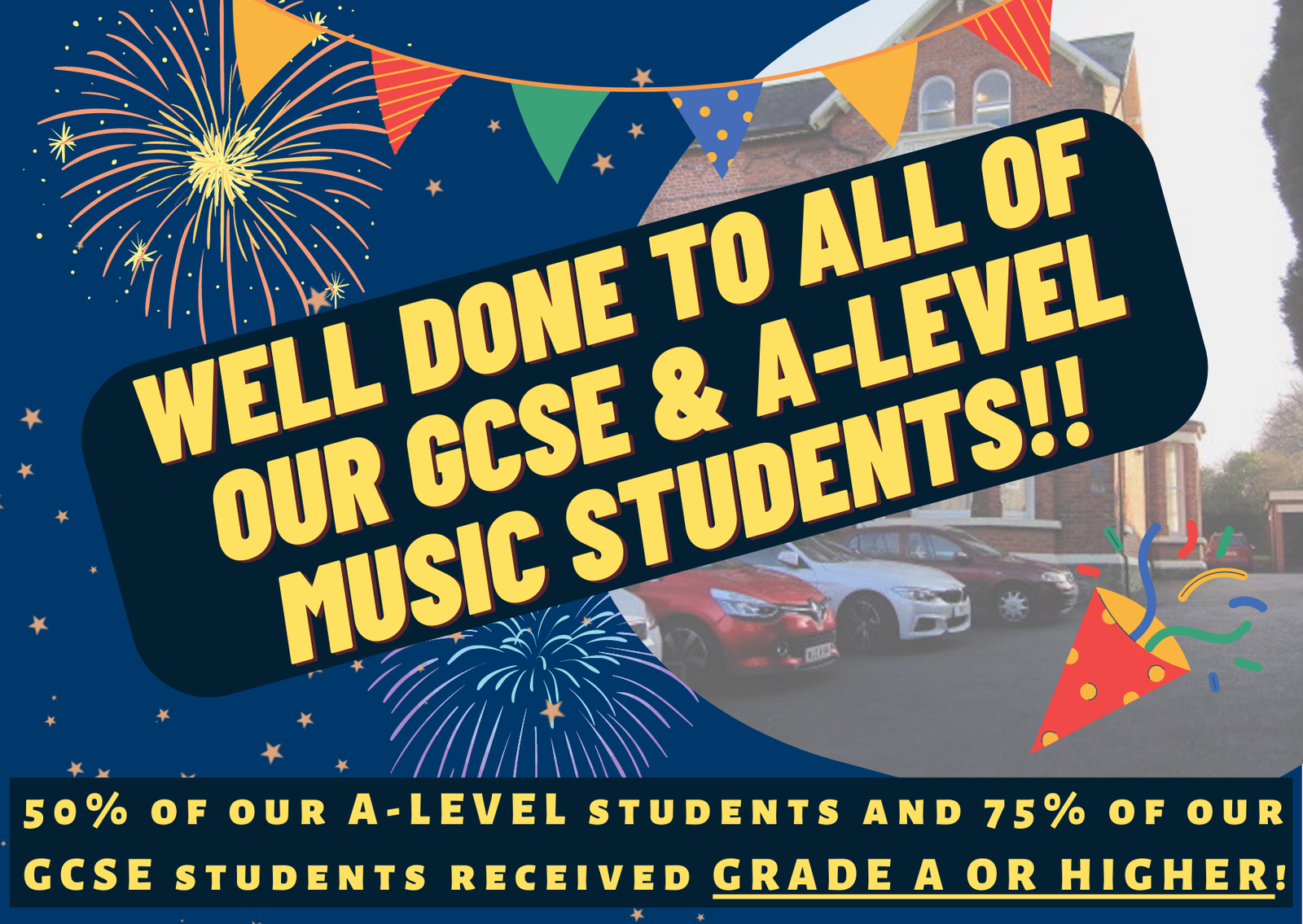
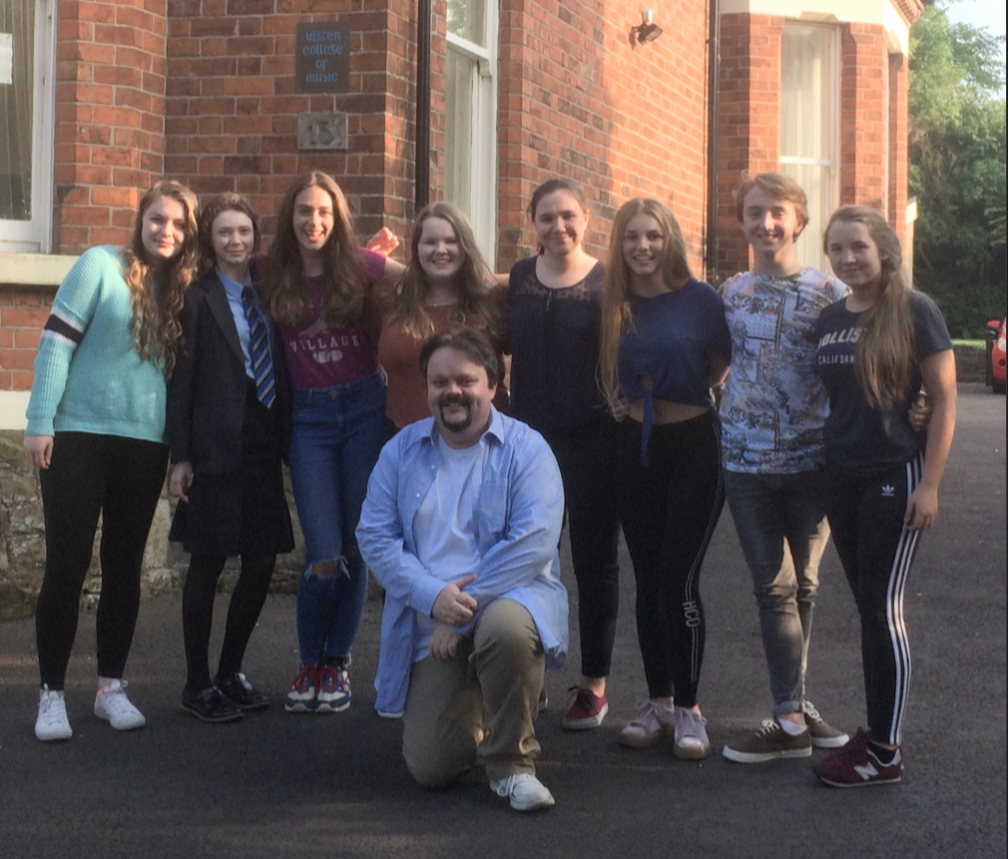
GCSE Group 1 Class of 2018 (31 May)
Sarah McClean, Niamh Hughes, Rebecca Moore, Caoimhe McAlinney, Kathryn Polson, Renee Petersen, Luc Burns, Aoife Mullan
(Teacher: Declan Plummer)
GCSE Class of 2017 (9 June)
Alex Edwards, Michael Graham, Hannah Flavelle, Sheya Chan, Niamh MacDermott, Oisin McDonnell
Absent students: James Wright, Corey O’Loan
The Ulster College of Music is unique in Northern Ireland as being the only non-school Centre to offer GCSE Music. Additionally, the College’s GCSE class covers the course in one academic year. Classes are generally quite small (usually 8), giving students ample teacher input and support, and last for two hours each week. They are held at the College and Zoom out of school hours, which allows students to continue with their regular classroom studies whilst completing the GCSE Music course. Dr Declan Plummer and Dr Anselm McDonnell are the course teachers.
Further information can be found via the CCEA website: www.ccea.org.uk/music or by contacting the College. These classes follow the CCEA specification, which focuses on three elements:
1. PERFORMING (30% Performance + 5% Viva Voce)
Largely this will be covered in students’ own instrumental or vocal lessons, though guidance will be given in selecting appropriate repertoire and explaining the guidelines that are detailed in the Specification. The length of the solo and ensemble performance combined should be no longer than 6 minutes. Students will be examined on the following:
- one solo piece (should be at least 2 minutes and may be accompanied)
- one ensemble piece (should be at least 1 minute and must feature at least two musicians)
- a viva voce discussion with the examiner (no longer than 3 minutes).
All the details regarding the performance guidelines and possible topics of conversation with the examiner can be found in the Specification (particularly pp.6-8, 15-16 and Appendices 2 & 3) under the Syllabus Materials section of this page. Make sure you read these pages and let us know if you need help. All GCSE students and their ensemble accompanists will need to be available for an assessed performance recital, organised for a Saturday in February (usually during half term).
2. COMPOSING (30%)
GCSE Music MONDAYS 5:00-9:00 (face-to-face at UCM) – students need to be available at some point during this time. Exact times to be arranged individually with Dr Anselm McDonnell.
Students will be taught composition techniques in the first few weeks of term after which they’ll be given time to complete two compositions (A&B).
- Composition A is a free composition for which the student will choose their own style and resources.
- Composition B is written in response to a pre-release stimulus provided in September – students will respond to ONE of the following: a short melodic fragment; a rhythmic motif; or a chord progression.
- Length of both compositions combined should be 3-6 minutes
Students must submit BOTH compositions in the form of a recorded performance (which may be live or sequenced) and they must also provide ONE of the following for EACH composition: a detailed notated score; a lead sheet; or a written account (max. 600 words) using a template provided by CCEA. Students will complete both compositions in College as it is controlled assessment.
3. LISTENING AND APPRAISING (35%)
GCSE Music Class FRIDAYS 5:30-6:30 (Zoom) – times can be altered depending on student interest)
Students will be taught how to analyse familiar and unfamiliar music by a range of composers, both male and female, within the four compulsory Areas of Study. Using eleven set works as case studies, students will learn how to comment perceptively on various musical features of any piece of music, including melody, harmony, tonality, form & structure, timbre, texture, tempo, metre, rhythm, dynamics and articulation. The four compulsory areas of study are as follows:
1) Western Classical Music 1600–1910
– Handel: For Unto Us a Child is Born from Messiah
– Mozart: Horn Concerto No. 4, third movement
– Berlioz: Symphonie Fantastique, fourth movement
2) Film Music
– Coates: March (The Dam Busters) from The Dam Busters
– Williams: Superman Theme from Superman
– Horner: Young Peter from The Amazing Spider-Man
3) Musical Traditions of Ireland
– Beoga: Prelude Polkas: Prelude Polka, Paddy’s Polka No. 2 and Millstream Reel
– Stonewall: Fife Medley: Boys of Belfast and The Girl I Left Behind
4) Popular Music 1980–present day
– Eurythmics: Sweet Dreams (Are Made of This)
– Ash: Burn Baby Burn
– Florence and the Machine: Cosmic Love
Syllabus Materials
UCM Documents For
GCSE & A-Level
GCSE and A-Level Exams Late Arrival Policy
UCM Student Composition Appeal Application Form
Unique Candidate Identifiers (UCI)
UCM Exam Access Arrangements Policy
UCM Emergency Evacuation Procedure
UCM Controlled Assessment Policy
UCM Use of Laptops in Examinations Policy
UCM Exam Identification of Candidates Policy
Disability & Special Educational Needs Policy
JCQ & CCEA Documents For
GCSE & A-Level
JCA Guidance for students, parents and guardians
Policy for Centre Determined Grades, Summer 2021, v2.
Centre Policy for the Post-Results Service
JCQ Social Media Information for Candidates
JCQ Coursework Assessments Information for Candidates
JCQ Non-Examination Assessments Information for Candidates
JCQ On-Screen Tests Information for Candidates

